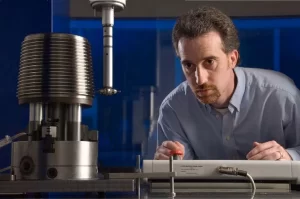Precision engineering is vital for ensuring the accurate and high-quality delivery of metal and steel fabrication machinery. Manufacturers must understand the principles of precision engineering to meet industry demands effectively.
However, precision engineering doesn’t end with the manufacturing process. It extends to the transportation of these delicate and heavy machines, which presents its own unique challenges. To ensure the machinery arrives in perfect condition, transportation methods must be carefully considered.
In this article, we will explore how transportation can enhance precision in metal and steel fabrication machinery delivery, and discuss the best practices that manufacturers can employ for optimal results. Join us as we delve into the world of precision engineering explained in transportation and discover its vital role in the successful delivery of these intricate machines.
Key Takeaways
- Precision engineering is crucial in metal and steel fabrication to ensure accuracy and quality in the end products.
- Challenges in precision engineering machinery delivery include fragility, size and weight, environmental factors, and compliance with regulations.
- Transportation methods can enhance precision by utilizing specialized packaging and crating, advanced securing techniques, vehicles with advanced suspension systems, and GPS tracking systems.
- Ensuring accuracy in machinery delivery requires customized packaging, highly trained professionals, specialized transportation vehicles, real-time monitoring systems, and prompt action in case of any issues.
The Importance of Precision Engineering in Metal & Steel Fabrication
Precision engineering plays a vital role in the field of metal and steel fabrication, ensuring the accuracy and quality of the end products. Metal and steel fabrication involves the shaping and forming of raw materials into various components and structures, such as beams, pipes, and plates. The precision engineering techniques employed in this process are crucial for achieving the desired specifications and dimensions.
One of the key aspects of precision engineering in metal and steel fabrication is the use of advanced machinery and tools. Computer Numerical Control (CNC) machines, for example, allow for precise and repeatable cutting, drilling, and bending operations. These machines are programmed with precise dimensions and specifications, ensuring that the fabricated components meet the required tolerances.
Another important aspect of precision engineering is the use of accurate measurement and inspection techniques. Metrology tools, such as coordinate measuring machines (CMMs) and laser scanners, are used to verify the dimensions and geometries of fabricated components. This ensures that the final products are within the required tolerances and meet the specified standards.
Furthermore, precision engineering also involves the selection and use of high-quality materials. The properties of the chosen materials, such as strength, durability, and corrosion resistance, directly impact the performance and longevity of the fabricated components. By carefully selecting and testing materials, precision engineers ensure that the end products meet the desired standards and can withstand the intended applications.
Challenges in Precision Engineering for Machinery Delivery
The successful delivery of precision engineering machinery poses several challenges that require careful consideration and meticulous planning. Ensuring the safe and efficient transport of these complex machines can be a daunting task, but with the right approach, these challenges can be overcome.
Here are some of the key challenges faced in precision engineering machinery delivery:
- Fragility: Precision engineering machinery is often delicate and sensitive to vibrations and shocks. Any mishandling during transportation can lead to costly damages and compromises in functionality.
- Size and weight: Many precision engineering machines are large and heavy, making their transportation logistically challenging. Specialized equipment and expertise are required to handle these heavy loads safely and efficiently.
- Environmental factors: Extreme temperatures, humidity, and other environmental conditions can negatively impact the performance and integrity of precision engineering machinery during transportation. Protecting the machines from these factors is crucial.
- Compliance with regulations: Precision engineering machinery often requires specific permits and certifications for transportation. Ensuring compliance with local, national, and international regulations adds an additional layer of complexity to the delivery process.
Addressing these challenges requires a comprehensive understanding of the machinery, meticulous planning, and collaboration between all parties involved. By prioritizing these considerations, precision engineering machinery can be successfully delivered, ensuring that it arrives in optimal condition and ready for use.
Enhancing Precision Through Transportation Methods
Successfully addressing the challenges in precision engineering machinery delivery requires the implementation of transportation methods that enhance precision and ensure the safe and efficient transport of these delicate and complex machines.
Precision engineering machinery is highly sensitive and requires careful handling to maintain its accuracy and functionality. Therefore, it is essential to utilize transportation methods that minimize vibrations, shocks, and other external factors that could affect the precision of the machinery.

One method of enhancing precision during transportation is the use of specialized packaging and crating. The machinery is securely packed and protected using custom-designed crates that provide cushioning and shock absorption. These crates are typically made from materials that offer high strength and durability, such as plywood or reinforced steel. Additionally, the crates are designed to distribute the weight evenly, preventing any imbalance that could lead to damage during transit.
Another important aspect of precision transportation is the use of advanced securing techniques. Machinery is secured within the transportation vehicle using specialized restraints, such as straps, clamps, and braces. These restraints are carefully positioned to ensure that the machinery remains stable and immobile throughout the journey. By preventing any movement or shifting, these securing techniques minimize the risk of damage caused by vibrations or sudden stops.
Furthermore, transportation methods that prioritize smooth and controlled movements can significantly enhance precision. This involves using vehicles equipped with advanced suspension systems and air-ride technology. These features absorb shocks and vibrations, providing a smoother ride for the machinery. Additionally, the use of GPS tracking systems allows for real-time monitoring, ensuring that the machinery is transported along the most efficient and least disruptive routes.
Ensuring Accuracy in Metal & Steel Fabrication Machinery Delivery
Ensuring the precision and accuracy of metal and steel fabrication machinery delivery requires meticulous attention to detail and the implementation of specialized transportation methods. To guarantee the safe and precise transportation of these heavy and delicate machinery, the following measures are taken:
- Customized Packaging: Each piece of metal and steel fabrication machinery is carefully packaged using customized crates and protective materials. This ensures that the equipment is well-secured and protected from any potential damage during transportation.
- Secure Loading and Unloading: Highly trained professionals handle the loading and unloading process using specialized equipment such as cranes, forklifts, and hoists. This ensures that the machinery is handled with utmost care and precision, minimizing the risk of any accidents or damage.
- Specialized Transportation Vehicles: Specialized transportation vehicles equipped with advanced suspension systems and shock-absorbing features are used to transport metal and steel fabrication machinery. These vehicles are designed to minimize vibrations and provide a smooth ride, ensuring that the machinery arrives at its destination in perfect condition.
- Real-Time Monitoring: Advanced tracking systems are used throughout the transportation process to monitor the location, temperature, and condition of the machinery. This allows for real-time updates and prompt action in case of any unforeseen circumstances.
Best Practices for Precision Engineering in Transportation
To optimize precision in transportation, implementing best practices is crucial for the successful delivery of metal and steel fabrication machinery. Precision engineering requires careful planning and execution to ensure that the machinery arrives at its destination in pristine condition, ready for use.
One of the best practices in precision engineering transportation is proper packaging. Machinery should be securely packed to prevent any movement or damage during transit. This includes using appropriate padding, strapping, and cushioning materials to protect delicate components from shocks and vibrations.
Another important aspect is the selection of transportation methods. Depending on the size and weight of the machinery, different modes of transportation may be required, such as trucks, ships, or airplanes. It is essential to choose the most suitable method that can accommodate the machinery’s dimensions and weight while ensuring timely delivery.
Furthermore, utilizing specialized equipment and handling techniques is essential for precision engineering transportation. This may involve using cranes, forklifts, or other lifting devices to safely load and unload the machinery. Additionally, training the personnel involved in the transportation process on proper handling procedures is crucial to avoid any mishaps.
Regular maintenance and inspection of transportation vehicles and equipment are also part of the best practices for precision engineering transportation. Ensuring that vehicles are in optimal condition and properly maintained reduces the risk of breakdowns or accidents during transit.
Frequently Asked Questions
What Is Precision Engineering and Why Is It Important in Metal and Steel Fabrication?
Precision engineering is the practice of designing and manufacturing intricate components with high accuracy and reliability. In metal and steel fabrication, precision engineering ensures the production of precise and high-quality parts, resulting in improved performance, efficiency, and safety.
What Are Some Common Challenges in Precision Engineering for Machinery Delivery?
Common challenges in precision engineering for machinery delivery include ensuring the safe transportation of heavy and delicate equipment, maintaining accuracy and precision during transit, and minimizing any potential damage or disruptions that may occur during the delivery process.
How Does Transportation Affect Precision in Metal and Steel Fabrication Machinery Delivery?
Transportation plays a crucial role in ensuring precision in metal and steel fabrication machinery delivery. The careful handling and secure transportation of these heavy and sensitive machines are vital to maintain their accuracy and functionality.
What Measures Can Be Taken to Ensure Accuracy in Metal and Steel Fabrication Machinery Delivery?
To ensure accuracy in metal and steel fabrication machinery delivery, measures such as proper packaging, secure transportation methods, and careful handling should be implemented. These steps minimize the risk of damage and maintain precision throughout the delivery process.
What Are Some Best Practices for Precision Engineering in Transportation?
Best practices for precision engineering in transportation involve meticulous planning, careful handling, and utilization of specialized equipment. Attention to detail, adherence to safety protocols, and regular maintenance of machinery are crucial for ensuring accurate delivery of metal and steel fabrication equipment.
Conclusion
In conclusion, precision engineering is crucial in the transportation of metal and steel fabrication machinery to ensure the accuracy and quality of the final products. By employing careful planning, packaging, and handling techniques, manufacturers can address the challenges of size, weight, and delicacy associated with transporting such machinery. These measures help maintain the integrity of the machinery throughout the delivery process, ultimately optimizing operations and delivering superior quality products.
You May Also Like:




